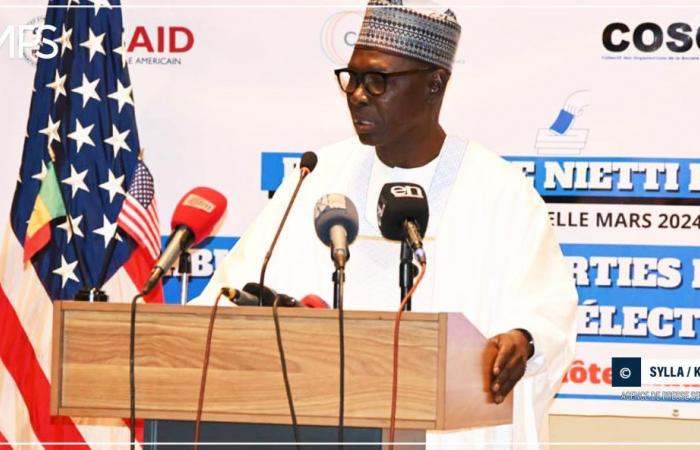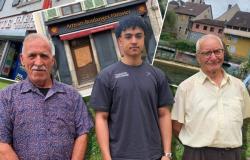
Dakar, July 1 (APS) – The presidential election of March 24 allowed Senegal to take a new step in the rooting of its democracy despite the political crisis which weakened national cohesion, welcomed, Monday, in Dakar, the Professor Babacar Guèye, president of the Collective of Civil Society Organizations for Elections (COSCE).
“The presidential election of March 24, 2024 undoubtedly allowed our country to take a new step in the rooting of its democracy,” he said during a national round table evaluating the electoral process, notably the presidential election of March 24.
According to him, the presidential election took place in excellent conditions despite the fact that “the political crisis, the vulnerability of the legal framework, the divisions of the political class and civil society have impacted living together in Senegal and weakened national cohesion.
The professor of constitutional law at the Cheikh-Anta-Diop University of Dakar (UCAD) praised the “maturity” of the Senegalese people who knew how to make good use of the voter card to democratically elect a new President of the Republic in the first round.
He considers that ”the organization of the last presidential election, despite the imperfections noted here and there, is basically a manifestation of the capacity of our society to assimilate this form of modernity that electoral democracy represents”.
The Collective of Civil Society Organizations for Elections (COSCE) also participated in all stages of this process at the end of which there was a “victory for democracy,” he said.
”But his most innovative, most emblematic action was his decisive contribution to a free, transparent and peaceful presidential election, through the Nietti Elections program,” he notably indicated at the opening of this two-day meeting.
Mr. Guèye reaffirmed COSCE’s firm commitment to making available to stakeholders its experience gained since 1999 in supporting electoral reform projects, with a view to promoting free and transparent elections.
Birame Sène, who came to chair the ceremony on behalf of the Minister of the Interior and Public Security, Jean-Baptiste Tine, was delighted with the commitment and professionalism that the COSCE demonstrated throughout the electoral process leading in the presidential election of March 24, 2024.
The Director of Training and Communication at the General Directorate of Elections reaffirmed the commitment of the ministry responsible for organizing elections to maintain “the course” for the success of future electoral contests.
“The electoral administration is subject to the requirement to stay the course, redouble its efforts on certain aspects and further strengthen the missions of institutional and non-institutional actors,” he assured.
The Ambassador of the United States of America to Senegal, Michael Rayner, praised the enduring commitment of the Senegalese people to democracy and democratic institutions.
“For decades, Senegal has been cited as a model of stable and democratic governance in the region, a well-deserved reputation of which the Senegalese people can legitimately be proud,” he stressed.
The round table will be marked by a panel on the review of the management model of the electoral system in Senegal since the Consensual Code of 1992. It will be co-hosted by the teacher-researcher in public law, Ngouda Mboup, and the training director and communication, Birame Sène.
The second panel will focus on monitoring the electoral process and will be co-hosted by Moundiaye Cissé, executive director of NGO 3D and Sadikh Niass, executive secretary of RADDHO.
“The Senegalese Constitutional Council and the dispute over the presidential election” is the third theme of the day under the direction of El Hadji Oumar Diop, lecturer at the Faculty of Legal and Political Sciences of UCAD.
Electoral expert, Ndiaga Sylla, will lead the theme: “Consolidating the electoral process in Senegal: the challenge of implementing the recommendations of electoral observation missions”.
Penda Mbow, president of the citizen movement, will present a communication on the lessons learned from the presidential election of March 24, 2024.
The conclusions of this round table are expected during the second day.
The opening ceremony took place in the presence of the country director of the National Democratic Institute (NDI), Alain Ayodokoun, the British ambassador, diplomatic and consular missions, presidential candidates, and parliamentary group presidents.
FD/OID/ASG





